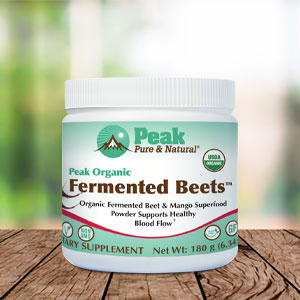Is caffeine good or bad for your heart?
There’s no doubt that caffeine can raise your blood pressure and heart rate.
But consuming moderate amounts of caffeine daily also has been linked to supple arteries and reduced risk of heart failure and atrial fibrillation.
Now there’s more good heart health news for those of us who love our coffee, tea and cocoa…
Caffeine and your blood vessels
Vascular disease, damage of blood vessels and their resulting consequences — heart attack and stroke — are among the leading causes of death in the general population.
These risks are even higher in patients with inflammatory rheumatic diseases like lupus and rheumatoid arthritis. This is due to the diseases themselves and some of their treatments, particularly derivatives of cortisone.
Until now, doctors have recommended avoiding risk factors to protect against vascular dysfunction. These recommendations included:
- Halting inflammation
- Decreasing cortisone medications
- Not smoking
- Reducing cholesterol
- Getting blood pressure under control
However, researchers from Sapienza University of Rome found suggestions that caffeine actively helps endothelial progenitor cells. This group of cells helps regenerate the lining of blood vessels and is involved in vascular growth.
A diet rich in vitamins D (found in oily fish and eggs) and A (found in many fruits), as well as polyunsaturated fatty acids, and low in sodium, appears to play a role in reducing the inflammatory burden. Scientists have been curious if caffeine belongs on that list.
Caffeine exerts its anti-inflammatory effect by binding with receptors expressed on the surface of immune cells.
The researchers studied 31 lupus patients who did not have traditional cardiovascular risk factors using a seven-day food questionnaire. After a week, the investigators took the patients’ blood to measure the health of their blood vessels. They found that patients who consumed caffeine had better vascular health, as measured by endothelial cells, which form the innermost layer of blood vessels.
“The present study is an attempt to provide patients with information on the possible role of diet in controlling the disease,” says Fulvia Ceccarelli, the paper’s lead author. “It will be necessary to confirm the results through a longitudinal study, aimed at assessing the real impact of coffee consumption on the disease course.”
There is a daily limit
Keep in mind that most health agencies recommend you consume no more than 400 mg of caffeine a day. Given that a typical eight-ounce cup of coffee contains 95 mg of caffeine, that means limiting your intake to roughly four of these cups.
However, the smallest coffee size at many coffee shops is 12 ounces, and the largest can exceed 20 ounces. If you tend to get your coffee fix there or use an oversized mug at home, you need to bear the size in mind.
Also, if you’re a fan of espresso drinks, bear in mind that they contain a compound that can negate coffee’s heart benefits and are often loaded with added fat and sugar. You may want to stick with brewed coffee to reap the full benefits of caffeine.
If you want to moderate your caffeine consumption, a good way to do so is to replace a cup or two of coffee with black or green tea. A cup of black tea contains approximately 47 mg of caffeine, while a cup of green tea contains around 33 mg.
Sources:
Caffeine is a heart-healthy habit — EurekAlert!
Caffeine improves systemic lupus erythematosus endothelial dysfunction by promoting endothelial progenitor cells survival — Rheumatology
How Much Caffeine Is In a Cup of Coffee? — Food Network
How much caffeine is in tea? — GoodFood
Read full article here




